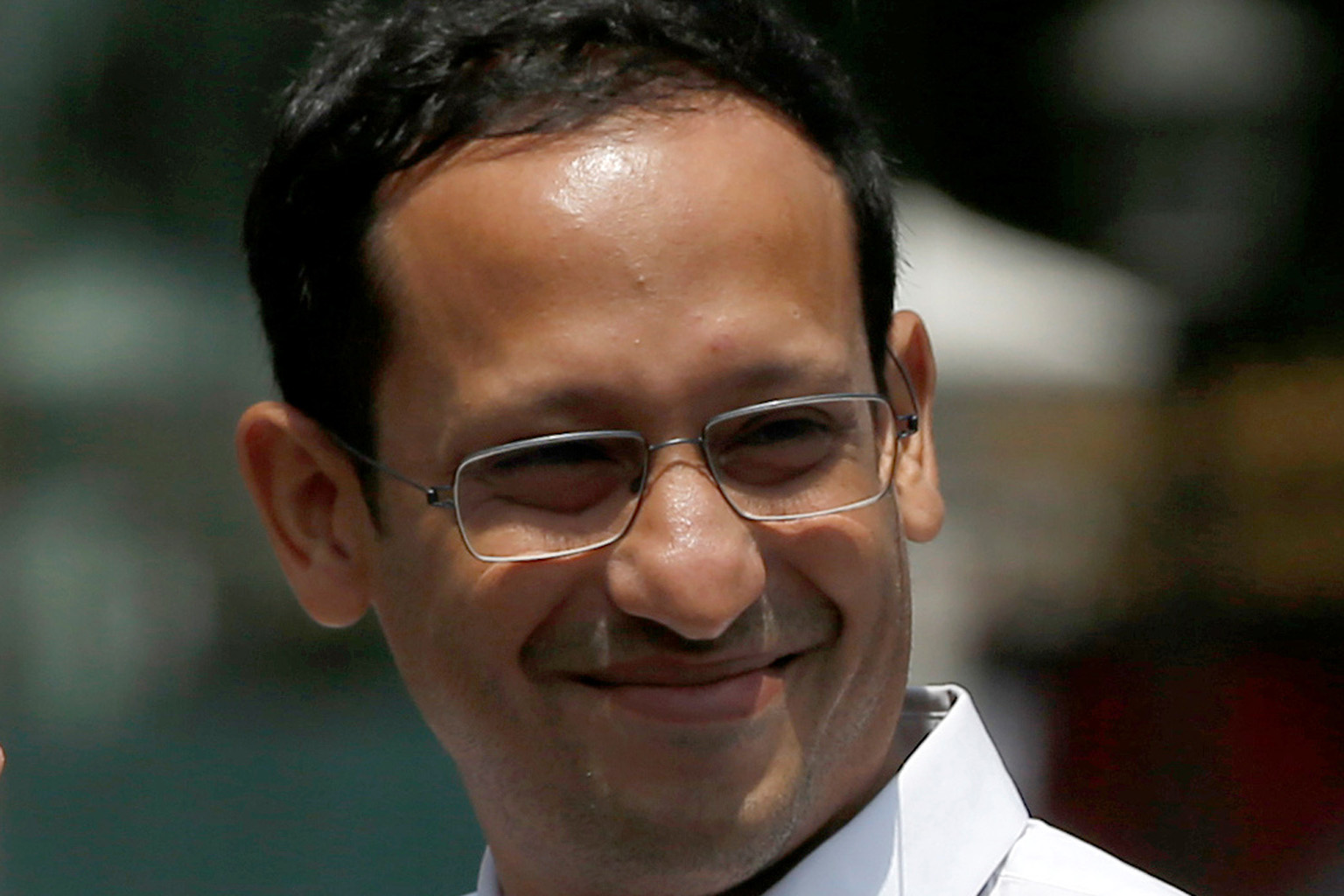Pandemic shows need to bridge digital divide: Indonesian minister Nadiem Makarim
Sign up now: Get ST's newsletters delivered to your inbox

Indonesia's Education and Culture Minister Nadiem Makarim yesterday talked about the "digital inequality problem".
Indonesia's Education and Culture Minister Nadiem Makarim said the coronavirus has sent governments around the world into "shock therapy" to close the digital divide in the education sector as countries went into lockdown.
"When Covid hit, we suddenly have to learn from home, and work from home. Suddenly governments, organisations, companies were thrown at the forefront of this digital inequality problem," he said yesterday, noting this included uneven access to the Internet and stable electricity.
"And everyone got to work, everyone rallied around the concept of digital access being a fundamental human right. That is precious."
Mr Nadiem was distinguished guest speaker at this year's four-day Singapore Summit, which gathered business and thought leaders to discuss global trends. His dialogue on the topic Learning from Covid-19: Redefining the Future of Education brought to a close the annual summit, which was held virtually this year due to Covid-19.
In the session moderated by Professor Danny Quah, dean of the Lee Kuan Yew School of Public Policy at the National University of Singapore, Mr Nadiem discussed the technological disruptions and challenges in the education sector due to the pandemic.
The 36-year-old, the youngest minister in President Joko Widodo's Cabinet, was co-founder of Gojek, one of South-east Asia's biggest start-ups which operates a multi-service app from motorcycle ride-hailing to digital payment.
Indonesia, South-east Asia's largest economy of 270 million people, continues to grapple with the pandemic, with 232,628 cases and 9,222 deaths as of yesterday. A citywide partial lockdown was reimposed in Jakarta last week.
Like elsewhere in the world, the health crisis has forced schools to shut in Indonesia and students to adopt remote online learning at home. Mr Nadiem said Indonesia was already facing a "gargantuan task" in providing quality education across the regions with massive variations in culture, language, geographical boundaries and infrastructure development, and the health crisis had only widened the inequality gap.
But technology aside, the biggest factor that can level the playing field between the haves and have-nots in the education sector is getting good teachers to less developed regions. "As great as technology is, nothing replaces a fantastic principal that you send to the islands of Maluku or Papua, and they just autonomously create reforms there in numeracy, literacy, critical thinking and have a love of mentoring other teachers," he said, referring to two remote islands in eastern Indonesia.
In his parting advice to students, he said they should be conscious of a growth mindset and not wait for the education system to change. Rather, they should seek the knowledge and relevant skills needed to chart their career path.
He also said that industries change rapidly and the young should take career advice from peers five to seven years older than them, and not from their parents.
"A lot of advice from parents is often outdated by the time (you) enter the workforce," he said. "Learn your values from your parents but be mindful of taking your career advice from them."


